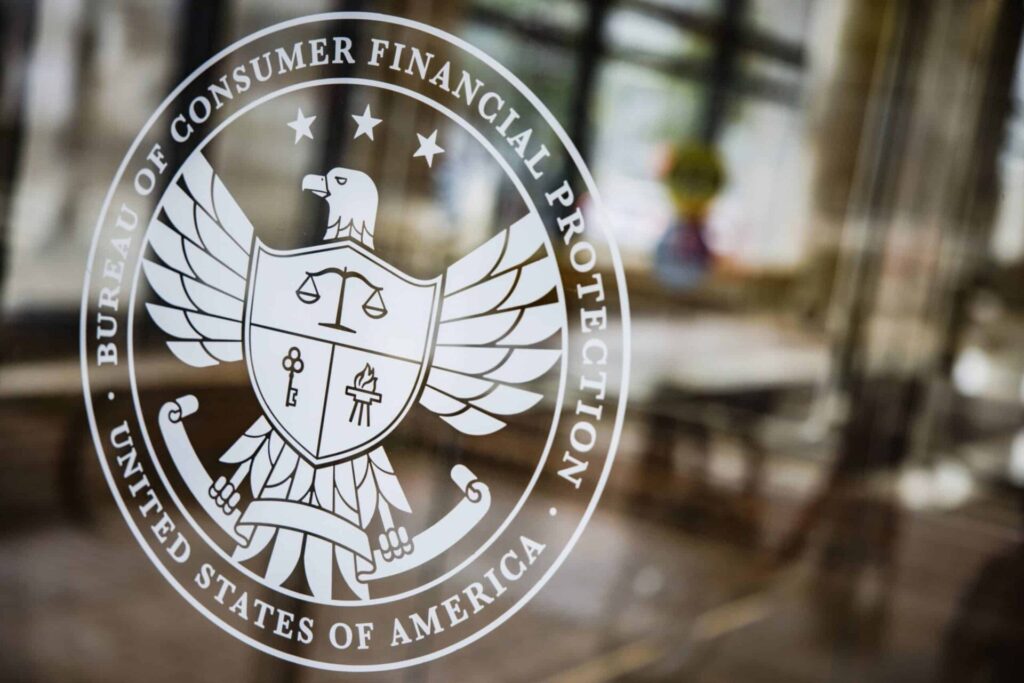CFPB pause prompts concern of ‘regulatory vacuum’
Lenders must still comply with state, federal laws
Lenders must be mindful of existing consumer law and state-level enforcement despite the current pause in enforcement activity by the Consumer Financial Protection Bureau.
State attorneys under the Dodd-Frank Act can bring actions that fall under unfair, deceptive or abusive acts or practices authority, John Redding, senior counsel at law firm Husch Blackwell, told Auto Finance News, an Equipment Finance News sister publication.
The Consumer Financial Protection Bureau (CFPB) pause is “not all of a sudden a free-for-all where you can do anything you want,” he said. The bureau also “looks at what you did previously, not what you’re going to do tomorrow, so you have to exercise care to ensure you’re following the law.”
This is “not all of a sudden a free-for-all where you can do anything you want.” — John Redding, Husch Blackwell
Shuttering the CFPB would “create a regulatory vacuum particularly for large depository institutions and non-bank financial entities,” Jim McCarthy, founder and chairman of financial consulting agency McCarthy Hatch and a founding member of the CFPB, told Bank Automation News, also an EFN sister publication.
“Large banks and non-depository lenders would likely see reduced scrutiny, while community banks and credit unions would remain under supervision by prudential regulators, creating an uneven playing field,” McCarthy said.
How long the CFPB pause will last is unknown as there isn’t a clear regulation that dictates reassessment must occur within a given period, Redding said.
Supervisory activity halted
The Department of Government Efficiency (DOGE), led by Tesla founder Elon Musk, over the weekend was granted access to the CFPB’s data systems on an order from the bureau’s new acting director, Russell Vought, who also heads the White House’s Office of Management and Budget.
All supervisory activity has been effectively halted at the CFPB per Vought’s instruction. Former CFPB Director Rohit Chopra was fired Feb. 1.
All rulemaking, communications and litigation at the CFPB have been paused as President Donald Trump’s administration reviews pending actions and works to align the bureau’s litigation with its priorities.

While it is typical for CFPB actions to be paused during an administration change, it is unusual for all supervisory activity to be stopped, Husch Blackwell’s Redding said.
“If we look back, these kinds of pauses are normal,” he said, noting Chopra also paused enforcement during a reassessment when he came in as director. “We’ve not historically seen a complete pause of supervisory activity.”
DOGE has put the financial services industry in an uncertain position, Ryan Blumberg, senior attorney at law firm Clark Hill, told BAN.
Pending cases or rulemaking are subject to review by the new administration, but any actions that are legally required to move forward will do so despite the pause, Husch Blackwell’s Redding said.
“To the extent there is a court that is requiring the bureau to meet timelines for discovery or a trial or anything else, then the bureau would arguably be entitled to proceed as necessary to meet those deadlines.” — John Redding, Husch Blackwell
“To the extent there is a court that is requiring the bureau to meet timelines for discovery or a trial or anything else, then the bureau would arguably be entitled to proceed as necessary to meet those deadlines,” he said. “Bureau leadership must decide whether they want to continue pursuing those cases, which we would expect under this reassessment.”
CFPB’s future
Musk on Feb. 7 tweeted “CFPB RIP,” which sparked questions within the financial services industry about the future of the consumer protection agency.
However, abolishing the CFPB would take an act of Congress as it was established by Congress and is funded by the Federal Reserve.
“The Dodd-Frank Act requires that the bureau conduct examinations to identify potential violations of consumer financial protection law,” Redding said. “Absent an act of Congress, we don’t see supervisory activity stopping entirely. There may be changes regarding what [the administration is] prioritizing.”
DOGE can, however, make recommendations to the president regarding spending cuts, Clark Hill’s Blumberg said. But dissolving the agency would require either congressional approval or the judiciary to step in, he said.
“From a general perspective, an executive department cannot override Congress without going through the proper channels,” Blumberg said. “That doesn’t mean they can’t significantly reduce the size of the CFPB.”
The annual inflation-adjusted funding cap that limits how much the CFPB can receive from the Federal Reserve sits at $823 million in FY 2025, according to a Dec. 9, 2024 report from the Congressional Research Service.
CFPB’s funding requests totaled $721 million in FY 2023 compared with $161 million in 2011, according to the Congressional Research Service.
Under Dodd-Frank, the CFPB is funded by “the combined earnings of the Federal Reserve System.” The bureau’s funding mechanism came into question last year but the U.S. Supreme Court ruled its funding as constitutional in a 7-2 decision in May 2024.
‘Chaos and regulatory gaps’
Without a centralized regulator like the CFPB overseeing consumer financial protections, enforcement actions and supervision would become fragmented, leading to inconsistent oversight, McCarthy said.
To fill in the regulatory gaps, other government financial agencies such as the Federal Reserve, FDIC and Office of the Comptroller of the Currency, along with state regulatory authorities, could be called on to absorb the CFPB’s responsibilities, McCarthy said.
The Federal Trade Commission and state attorneys general might attempt to step in, but neither has the scope nor infrastructure to match CFPB’s nationwide complaint process effectively, McCarthy said. Eliminating the CFPB will lead to “chaos and regulatory gaps,” he added.
DOGE’s past actions and plans
DOGE is looking to reduce government expenditures and has already halted activities at the U.S. Agency for International Development, which many expect to be absorbed by the U.S. State Department.
Musk has also suggested that all Treasury payments should be moved to blockchain for increased visibility on what the Treasury is spending its money on, according to a Feb. 2 tweet.
With DOGE firing on full cylinders, if the pause on CFPB actions remains in place, “it signals an administrative attempt to defund and disable the agency without formal legislative action,” McCarthy said.
The third annual Equipment Finance Connect at the JW Marriott Nashville on May 14-15, 2025, is the only event for both equipment dealers and finance providers. Learn more and register here.









